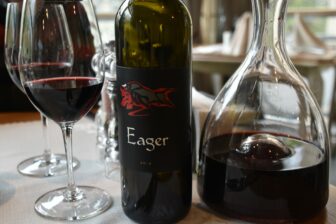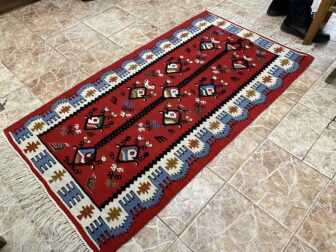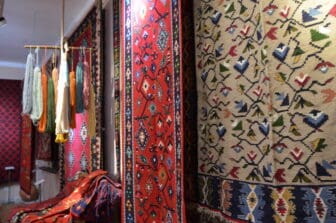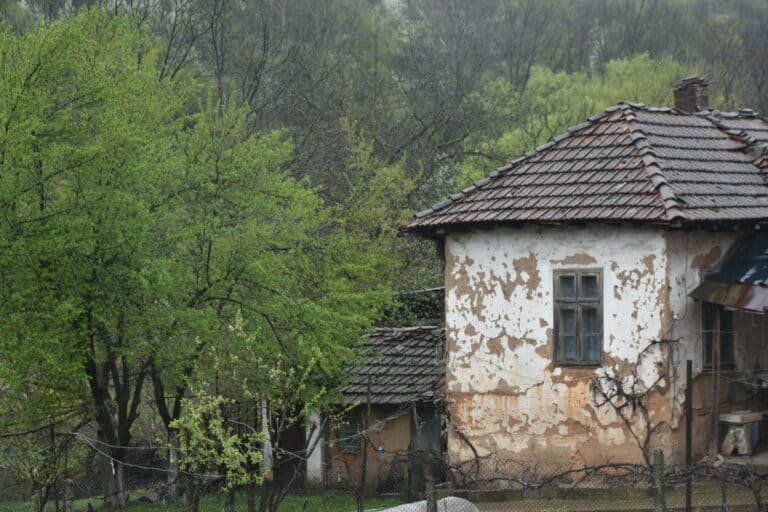
[April 2022] The room was finally ready at Torlacite Kashta, a guesthouse in Chiprovtsi, a town in north western Bulgaria.
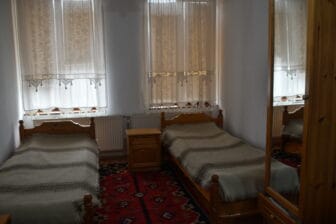
We went out the back door of the room that works as the dining room and the weaver’s workplace, and went up the stairs to find the room.
It was a wooden room with kilims on the windows and floor.
The interior was simple yet tasteful.
And it was so cold that day that I was grateful for this warm room.
Dropping off our bags, we headed out for a walk around town.
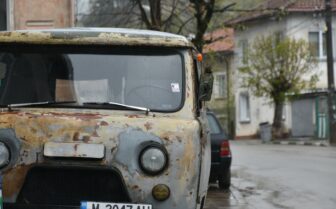
On top of being cold and it was raining.
Besides, maybe because it was Sunday, the town was very quiet.
There was an old truck, there were goats in a cage, and it looked like a very plain country town.
Carpet weaving may have flourished a little more in the past, but now it looked obsolete.
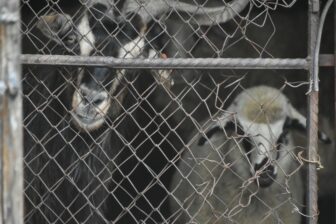
We found one carpet shop, but it was closed.
This dreary image, however, may be due to the weather.
After walking around and returning to the inn, we wondered what to do for dinner and asked the owner, Ilya, if there was a restaurant.
He told us to have dinner here, so we decided to do that.
After taking a rest, dinner was served at 6:30.
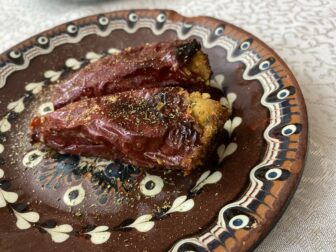
First, homemade Rakia was served, followed by the classic Shopska salad.
Then we were served something called ‘Tushka su Bop’, bean stuffed green peppers, which was said to be a local dish.
It tasted as nice and simple as it looked.
They said that peppers can be spicy at times, but mine wasn’t spicy at all.
The main dishes are oven-baked tender pork and homemade potatoes.
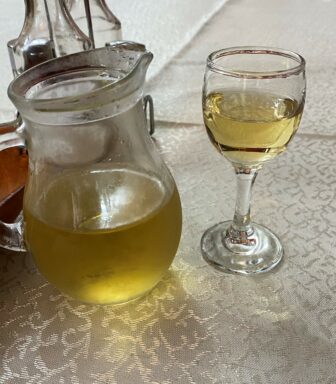
The herbs on the pork were a little too strong for me, but the pork was of good quality and delicious.
We had this dinner together with Ilya and his wife Milena.
Ilya was the only one who spoke a little English, but with Milena, who had good intuition, we were able to communicate what we wanted to say.
She teaches social studies at school.
They have two children in their 20s, and a daughter living in Germany and a son in Sofia.
And the carpet weaving mother lives alone about 40 metres from here.
Ilya himself is an indigenous middle aged man with a strong love for his hometown, and he seems unable to think of leaving here.
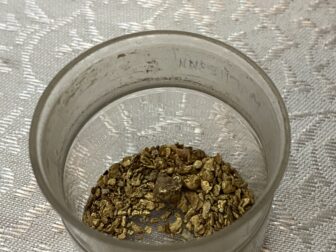
“I have three golds,” he said.
As for what they are, the gold he collects in the river, the saffron he grows, and “the third gold is my wife Milena,” he said, smiling.
For a simple man in the countryside, he’s pretty witty, isn’t he?
As we talked, we gradually realised that Japan’s JICA was (or had been ?) cooperating with the development of this town.
One time five Japanese women stayed here and learned carpet weaving from his mother.
He said that JICA held a meeting here once every two years, and the Japanese person in charge, Taichi, is “our Japanese son.”
He didn’t speak English very well, so I would not say that our conversation was a lively one, but we had a very good time.
It became late at night and we said “Leka nosh” (good night) and left the room to find it was sleet outside.

